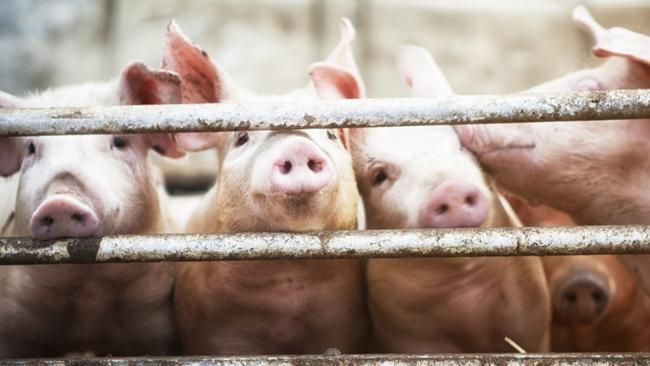Japanese encephalitis found in Light Regional Council piggery
Another piggery in SA has cases of Japanese encephalitis, bringing the total to seven and raising the risks to horses, people – and even alpacas. Find out where.
SA News
Don't miss out on the headlines from SA News. Followed categories will be added to My News.
Japanese encephalitis has been detected in another South Australian piggery, bringing the total to seven.
The latest piggery is in the Light Regional Council.
It follows the virus being detected in piggeries in the Clare and Gilbert Valleys, Goyder, Loxton Waikerie, Murray Bridge, and Coorong councils.
A Department of Primary Industries and Regions spokeswoman said there were no food safety risks associated with eating pork due to the mosquito-borne virus.
The Department of Primary Industries and Regions (PIRSA) had previously also detected a case of Japanese encephalitis in an alpaca in the Adelaide Plains Council area, north of the city.
South Australians are advised to avoid being bitten by mosquitoes, which transmit the virus from animals to humans.
In the current outbreak, there have been eight confirmed cases of Japanese encephalitis in people notified in SA, including one death.
Most people infected with the virus are asymptomatic or develop a mild febrile illness. A small proportion of infected people will develop encephalitis, which may be fatal or cause long-term neurological damage.
Symptoms of encephalitis may include confusion, headaches, neck stiffness, tremors, drowsiness and seizures.
South Australia’s chief veterinary officer Dr Mary Carr urged pig and horse owners to control mosquitoes on their property, “through eliminating breeding areas and using chemicals responsibly”.
“Remember, Japanese encephalitis is a notifiable disease – animal owners must report any signs of the virus in your animals, including unexplained pig deaths especially in piglets, unexplained horse illnesses, or other neurological signs in their animals to their private vet or the Emergency Animal Disease Watch Hotline on 1800 675 888,” Dr Carr said.

“PIRSA will cover the testing costs while JE surveillance continues, so please don’t hesitate to report signs of JE because you are concerned about testing costs.”
In pigs the most common clinical signs of JE are mummified and stillborn or weak piglets, some with neurological signs. In horses and alpacas most animals infected do not show symptoms, with a small number developing neurological signs due to a swelling of the brain.
The chairman of Pork SA, Andrew Johnson, said the industry was working closely with the Department of Primary Industries and Regions (PIRSA) and SA Health.
“We are pleased SA Health is planning the priority vaccination program in South Australia,” he said.
“Pork SA is assisting the planning for efficient and convenient vaccination across industry and will communicate this information to its members and those eligible.”
He emphasised that there were “no food safety issues associated with eating pork meat or pork products due to this disease”.
PIRSA and SA Health continue to work together, with local industry, and with interstate counterparts to understand the implications, and to communicate to farmers how they can reduce the risk of human exposure.
The executive director of health protection and licensing services, Dr Chris Lease said while there was a vaccine available, personal and household protective measures remained the first line of defence.
“If you are outside, apply an insect repellent containing DEET or picaridin, and try to stop mosquitoes coming indoors,” Dr Lease said. “Cover up with long, loose fitting and light-coloured clothing. Mosquitoes can bite through tight clothing such as jeans or leggings.”
For more information on how to prevent mosquito bites, visit www.sahealth.sa.gov.au/fightthebite
For more information about JEV in pigs and horses, visit pir.sa.gov.au/je-virus





